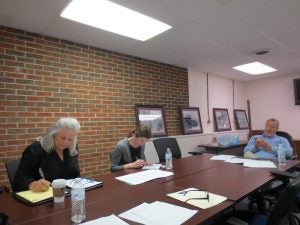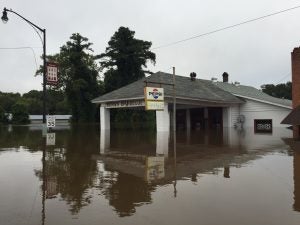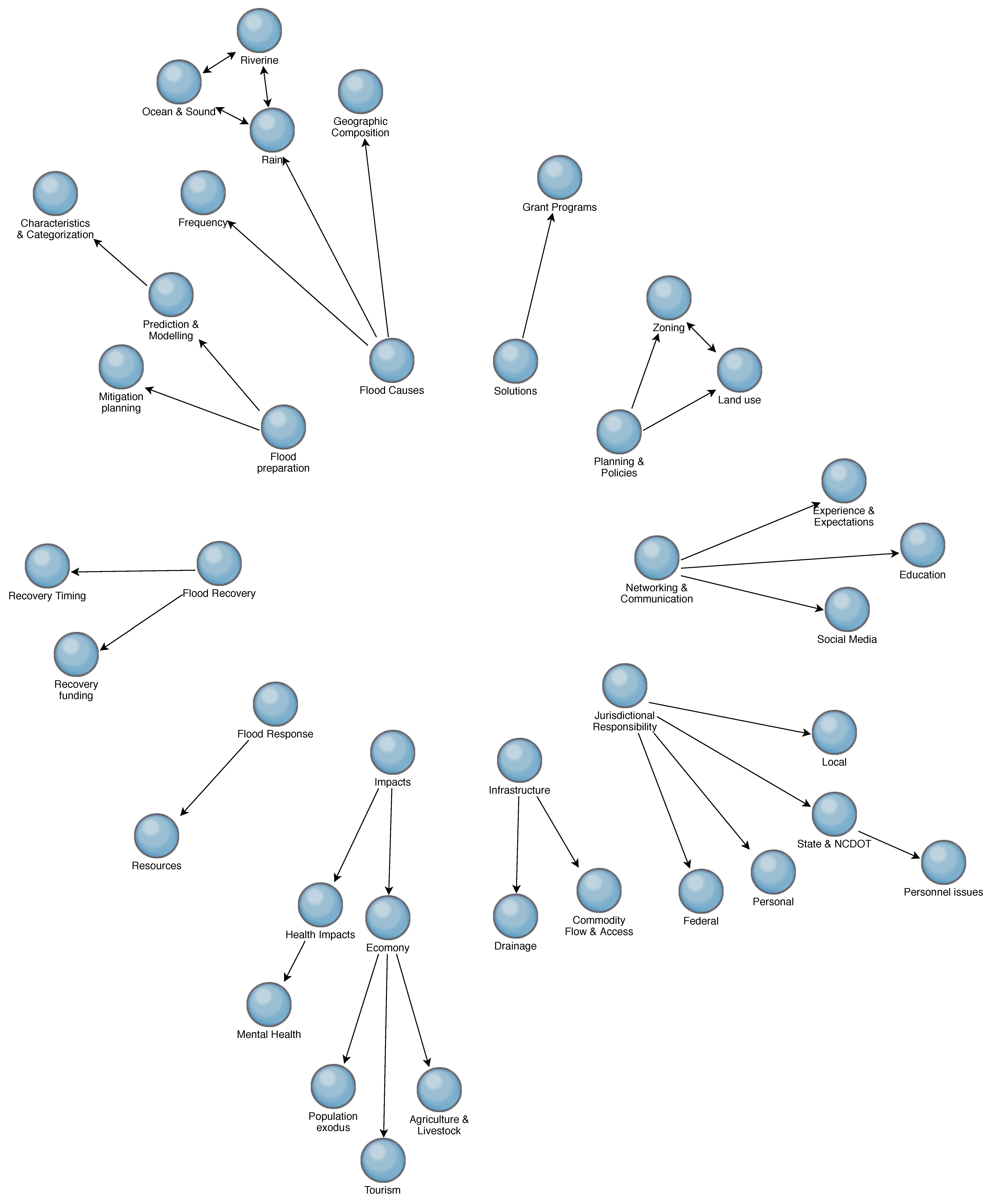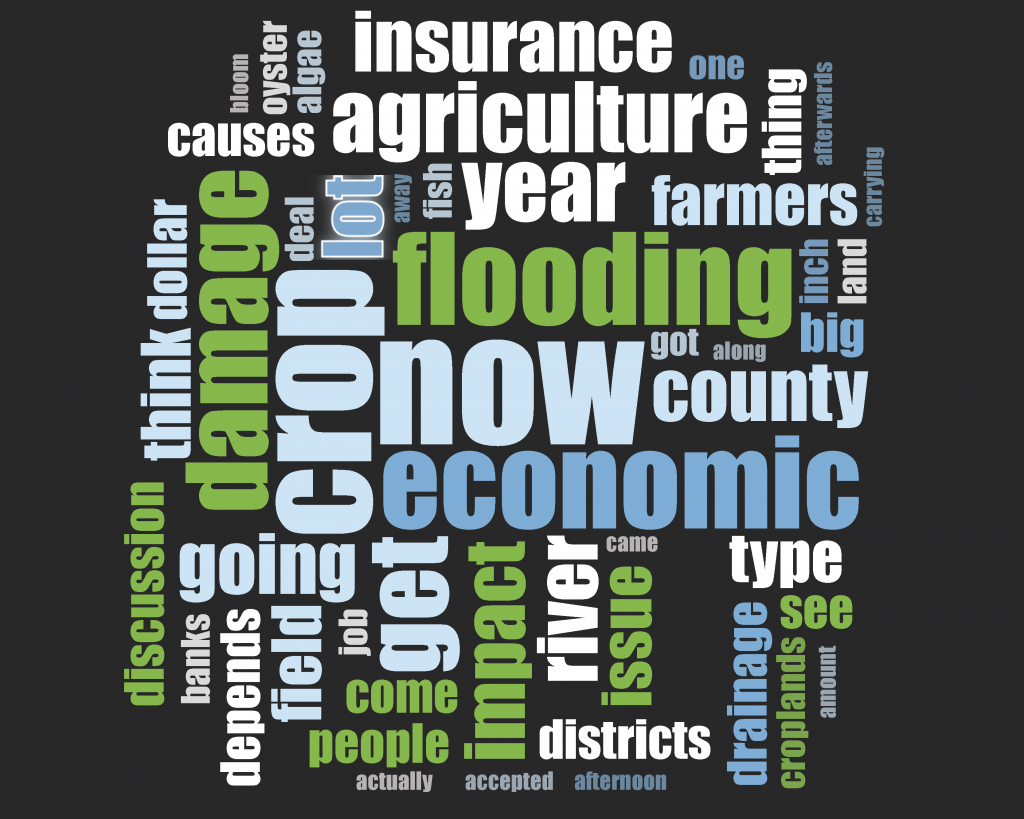NOAA COCA/SARP: Preparing for, Responding to, and Mitigating Compound Coastal Water Hazards for Resilient Rural Communities
-
PI, Dr. Scott Curtis, The Citadel, wcurtis1@citadel.edu
-
co-PI, Dr. Jamie Kruse, East Carolina University
-
co-PI, Dr. Anuradha Mukherji, East Carolina University
-
co-PI, Dr. Ausmita Ghosh, East Carolina University
-
Collaborator, Dr. Jennifer Helgeson, National Institute of Standards and Technology
Coastal estuarine environments are susceptible to a combination of multiple water hazards that are concurrent or sequential, often storm-related, and contribute to societal, economic, and health risks. These have recently been defined as compound events. River flow, extreme precipitation, coastal water level, surge, and water-related morbidity/mortality intersect at varying spatial and temporal scales at the coast and the combined risk is often much more complex and impactful than when considering one hazard in isolation. Studies of compound events have gained traction in the climate community, but traditional risk assessment and communication usually focus on one hazard at a time. Furthermore, there are gaps in our understanding of i) the geographic context of compound events, especially in understudied rural estuarine areas, and ii) some key components of these events such as pluvial (or flash) flooding, standing water following a storm, and health effects.
T he Center for
he Center for Natural Hazards Research at ECU in partnership with The Citadel’s James B. Near Center for Climate Studies, Mid-East Commission, and the National Institute of Standards and Technology were awarded a grant by the National Oceanic and Atmospheric Administration (NOAA) to co-produce compound event non-structural tools with emergency managers and planners in 28 coastal counties of North Carolina, making up four regional government councils, and roughly coinciding with the northeast and southeast economic zones. We have three objectives for this study. 1) use focus groups to understand the perceived risks and needs of emergency managers and planners, 2) quantify the economic and health impacts from recent compound events in the region, with an emphasis on Hurricanes Matthew and Florence, 3) return to the same focus groups to report on the research and relate it to their initial perceptions and experiences with the goal of developing best practices.
Natural Hazards Research at ECU in partnership with The Citadel’s James B. Near Center for Climate Studies, Mid-East Commission, and the National Institute of Standards and Technology were awarded a grant by the National Oceanic and Atmospheric Administration (NOAA) to co-produce compound event non-structural tools with emergency managers and planners in 28 coastal counties of North Carolina, making up four regional government councils, and roughly coinciding with the northeast and southeast economic zones. We have three objectives for this study. 1) use focus groups to understand the perceived risks and needs of emergency managers and planners, 2) quantify the economic and health impacts from recent compound events in the region, with an emphasis on Hurricanes Matthew and Florence, 3) return to the same focus groups to report on the research and relate it to their initial perceptions and experiences with the goal of developing best practices.
Feb 26, 2020 Workshop
| Number of focus groups | 14 |
| Number of attendees | 41 |
| Occupations | Planner, Emergency Manager, Soil and Water Conservation Technician, County Commissioner, Town Administrator, Mayor |
| Key questions: | How do you perceive flood risk in your community/jurisdiction? What type of flooding is most surprising or unexpected in your community/jurisdiction? What type of flooding is most damaging? What economic and health impacts have you seen from flooding in your community/jurisdiction? |
Feb 16, 2022 Workshop
| Number of focus groups | 14 |
| Number of attendees | 24 |
| Occupations | Planner, Emergency Manager, Soil and Water Conservation Technician, County Commissioner, Town Administrator, Mayor, Environmentalist, Physician |
| Key questions: | What health/economic vulnerability metrics and resources would be most helpful to you and in what format? What is your opinion on buy-outs? What policy instruments would you suggest at the state and federal levels to support resilience to compound flooding? How can funding mechanisms or streams be improved? |
Small group input sessions worked well & provided an opportunity for everyone to be engaged/provide input.
Preliminary Themes from the 2020 Workshop

Word Cloud Related to the Theme “Agriculture”

